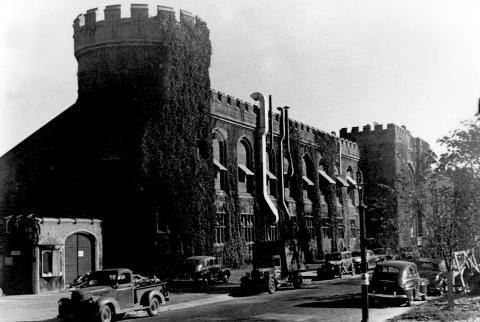John Chipman was an American engineer.
Chipman was born in 1897 in Tallahassee, Florida. He received B.S. from the University of the South in Tennessee, an M.S. from the State University of Iowa, and a Ph.D. from the University of California.
He went on to work as a research engineer at the University of Michigan, where he worked on the chemical and physical construction of steel, ultimately leading to the refinement of steel. For this work, Chipman received the Henry Marvin Howe Medal from the American Society of Metals. Chipman went on to accept a teaching position at the Massachusetts Institute of Technology, where he would eventually become the head of the Department of Metallurgy.
During World War II, Chipman went to the University of Chicago to work on the Manhattan Project. His previous work with steel led him to create a system whereby powered uranium could be converted into solid castings, a crucial component as solid uranium at the time was scarce.
After the war, Chipman returned to teach at MIT, where he would stay until his retirement in 1962. During his professional career, he was a member of numerous organizations including the National Academy of Sciences, the American Society for Metals, the American Chemical Society, and the American Institute of Mining and Metallurgical Engineers.
Chipman died on May 14, 1983 in Winchester, Massachusetts.





